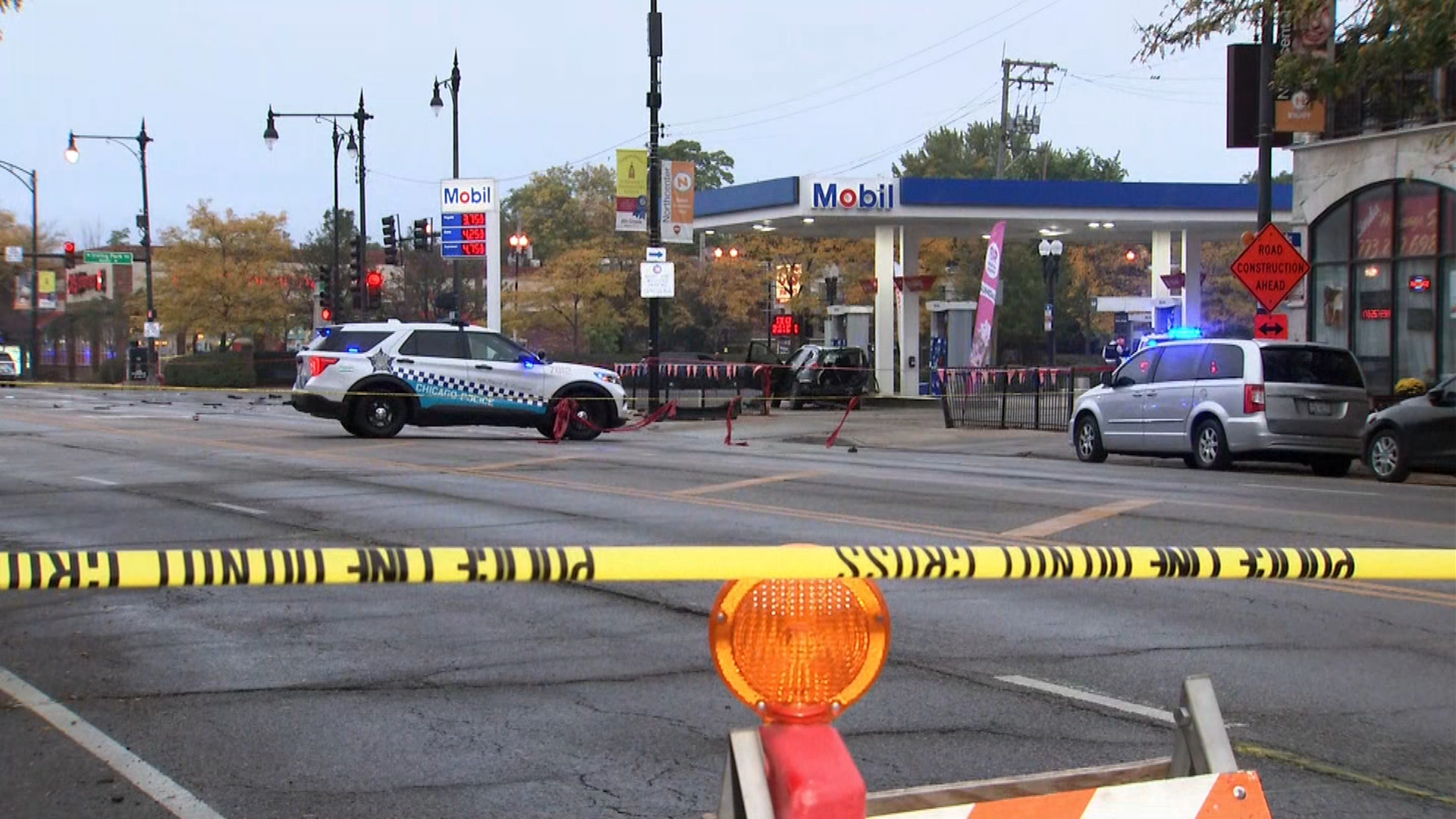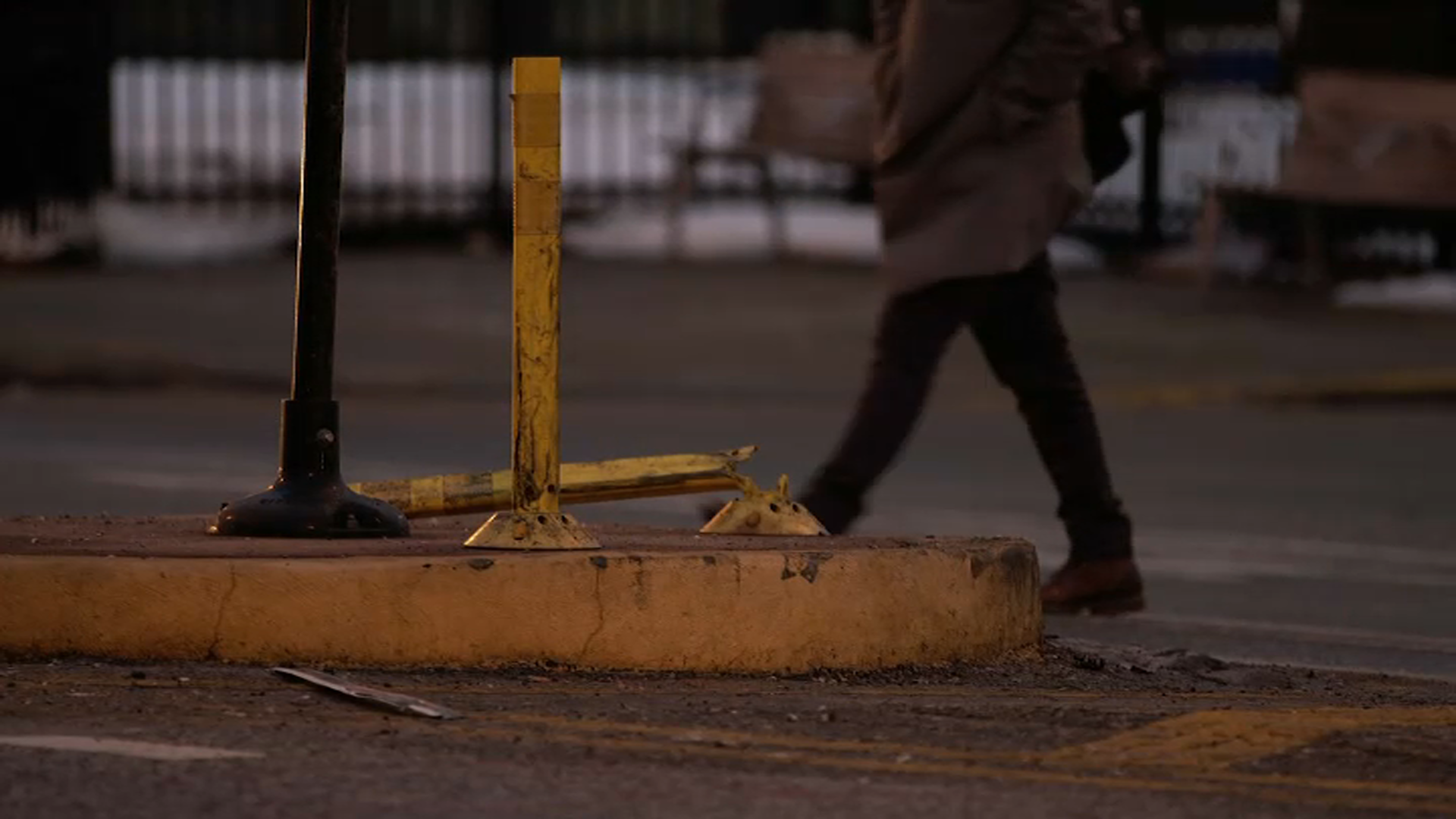Chicago saw more than 37,000 hit-and-run crashes in 2021, but over that same time period, just 306 people were arrested on charges related to fleeing the scene of a crash, according to city data analyzed by NBC 5 Investigates.
Why do Chicago police solve so few of these crimes? In one case, the family of the victim says even now – nearly six months after the crash – investigators have still failed to act on an obvious clue: a license plate they had from day one.
At around 3:50 p.m. on Aug. 26, Linda Mensch, 70, was leaving the Garfield Park Conservatory when she was hit by a driver in a van as she and a friend stepped into the crosswalk in the 300 block of North Central Park Avenue.
“The driver got out, sort of talked to my mom's friend briefly and then got back in the car and pulled a U-turn, dragging her body with her under the car, and sped off in the opposite direction,” Mensch’s daughter Jessica Heyman recalled.
Chicago police sent out a community alert the following morning that included photos of the van, as well as its license plate number.
But this week, police still have not made an arrest in the case – or even interviewed the owner of that vehicle, NBC 5 Investigates has learned.
What’s more, arrest records obtained by NBC 5 Investigates show police actually had that same owner of the car in custody less than a month after the crash on an unrelated gun offense. But the arrest report in that incident does not indicate he was ever questioned then about the fatal hit-and-run, or whether detectives in that case even knew about it.
“I just see absolutely no reason here why an arrest warrant should not be issued for this man,” Heyman said.
When Heyman – who is a public defender in New York – pressed police to go to the state's attorney and get a warrant in her mother's case, she said the detective turned on her after they refused.
Feeling out of the loop? We'll catch you up on the Chicago news you need to know. Sign up for the weekly> Chicago Catch-Up newsletter.
“The officer calls me back and he tells me that I've embarrassed him and he starts berating me by having asked for him to get an arrest warrant,” Heyman said. “The interactions were such that it's made it really hard for me to follow up with the cops because it's either been, you know, either sort of this condescending or this defensive tone that's been very emotional for me to have to deal with.”
Heyman also said she learned in that same conversation that police hadn’t employed a common investigative technique – or even heard of it – until she suggested it.
“I asked whether they'd done any cell tower triangulation which is something that's fairly, you know, standard if you're trying to ensure that it's the right person in the right place,” Heyman said. “The detective hadn't heard of it, and asked me where I would get this guy's cell phone number. And I told him to check the driver's registration. And he calls me back a couple hours later, and is like, ‘Yes, okay, I've looked into this process. It is real. And you're right, his cell phone number is on the driver's registration.’”
“It made me feel the sense of just agony and confusion about, sort of, the - I don't know, the complete neglect and incompetence of the people working on this case,” she added.
Chicago police refused multiple requests for an interview about this case, or their low clearance rate overall on hit-and-run crashes. They declined to answer several specific questions, saying only in a statement on hit-and-runs in general that the department "thoroughly investigates all crimes."
"Investigations into hit-and-run accidents can be lengthy due to evaluating and processing both physical and digital evidence, in addition to obtaining witness statements," CPD’s statement reads. "Further, many of these investigations rely on forensic evidence, which requires additional time to be analyzed as we seek justice for victims and their families."
The Chicago Police Department and the city’s Office of Emergency Management and Communications also each denied a respective Freedom of Information Act request for investigative reports and videos in this case. On Tuesday, NBC 5 filed a lawsuit in Cook County seeking to obtain those materials.
On top of her family’s own heartbreak, Heyman noted that her mother’s killer is still out there, still driving.
“That should be terrifying for anyone who walks in the streets,” Heyman said, adding that her mother would have been outraged if she had seen this happening to someone else.
“She'd be furious. She would not stop until there had been justice,” Heyman said. “She wanted everyone to be treated with respect and dignity, and that's not how the Chicago Police Department are treating her or our family.”



